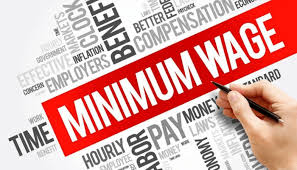In July 2024, President Bola Tinubu approved a new national minimum wage of N70,000 for civil servants, with a commitment to review it every three years.
While the directive was met with pledges from some states to implement the new wage by the end of October or November 1, others are grappling with various challenges, resulting in delays or outright refusals to comply.
Several states have vowed to exceed the N70,000 benchmark, while others are either establishing committees or are yet to make any official pronouncements.
In some states, negotiations with labour unions are ongoing, while a handful are expected to announce new wage structures soon.
Below is an overview of states that have not yet taken concrete steps toward implementing the new minimum wage:
1. Bauchi: The state government has set up a tripartite technical committee to determine the modalities for the new wage’s implementation.
2. Benue: Governor Hyacinth Alia has committed to the new wage, acknowledging the financial difficulties but expressing confidence in handling salary payments through improved Internally Generated Revenue (IGR).
3. Imo: Discussions between Governor Hope Uzodimma’s administration and labour leaders are ongoing to finalize payment structures, taking into account adjustments for senior civil servants.
4. Kaduna: While Special Adviser on Labour Matters, Adamu Sama’ila, confirmed a committee is in place, negotiations have not started due to the absence of a new salary table from the National Salary and Wages Commission.
5. Kano: Governor Abba Yusuf has pledged to announce a new minimum wage after receiving recommendations from the committee next week, reaffirming his administration’s commitment to workers’ welfare.
6. Nasarawa: Governor Abdullahi Sule expressed readiness to implement the new wage but has not taken definitive action yet.
7. Osun: Civil servants are growing increasingly critical of the delay. Commissioner for Information, Kolapo Alimi, noted that a committee is finalizing its recommendations for necessary approvals.
8. Oyo: Governor Seyi Makinde’s administration has not made a decision on the new wage policy. Chief Press Secretary, Sulaimon Olanrewaju, emphasized the need for consultations with relevant stakeholders.
9. Plateau: The government has expressed its intention to implement the new wage but has yet to announce a timeline. Discussions with unions are ongoing to ensure a sustainable implementation plan.
10. Sokoto: Despite initial promises by Governor Ahmed Aliyu, there has been no recent communication regarding the wage implementation. The Commissioner for Information, Sambo Bello Danchadi, reassured that the wage would be paid, but no specific timeline has been set.
11. Taraba: Governor Agbu Kefas remains committed to the new wage but has not provided any concrete details yet. The state is still adhering to the previous N30,000 minimum wage.
12. Yobe: A 10-member committee has been established to discuss the implementation of the N70,000 minimum wage.
13. Zamfara: The state continues to pay the old N30,000 minimum wage, with no new developments regarding an upgrade.
The hesitance among these states comes despite the Nigeria Labour Congress (NLC) issuing a stern warning that they would not accept any payments below N70,000 in October salaries, citing rising living costs and economic challenges. The union has set an October deadline for all governors to comply, warning of potential industrial action if the new wage is not implemented promptly.
With the rising cost of living and growing dissatisfaction among workers, all eyes are on state governments to deliver on the new wage policy or face the consequences.



























